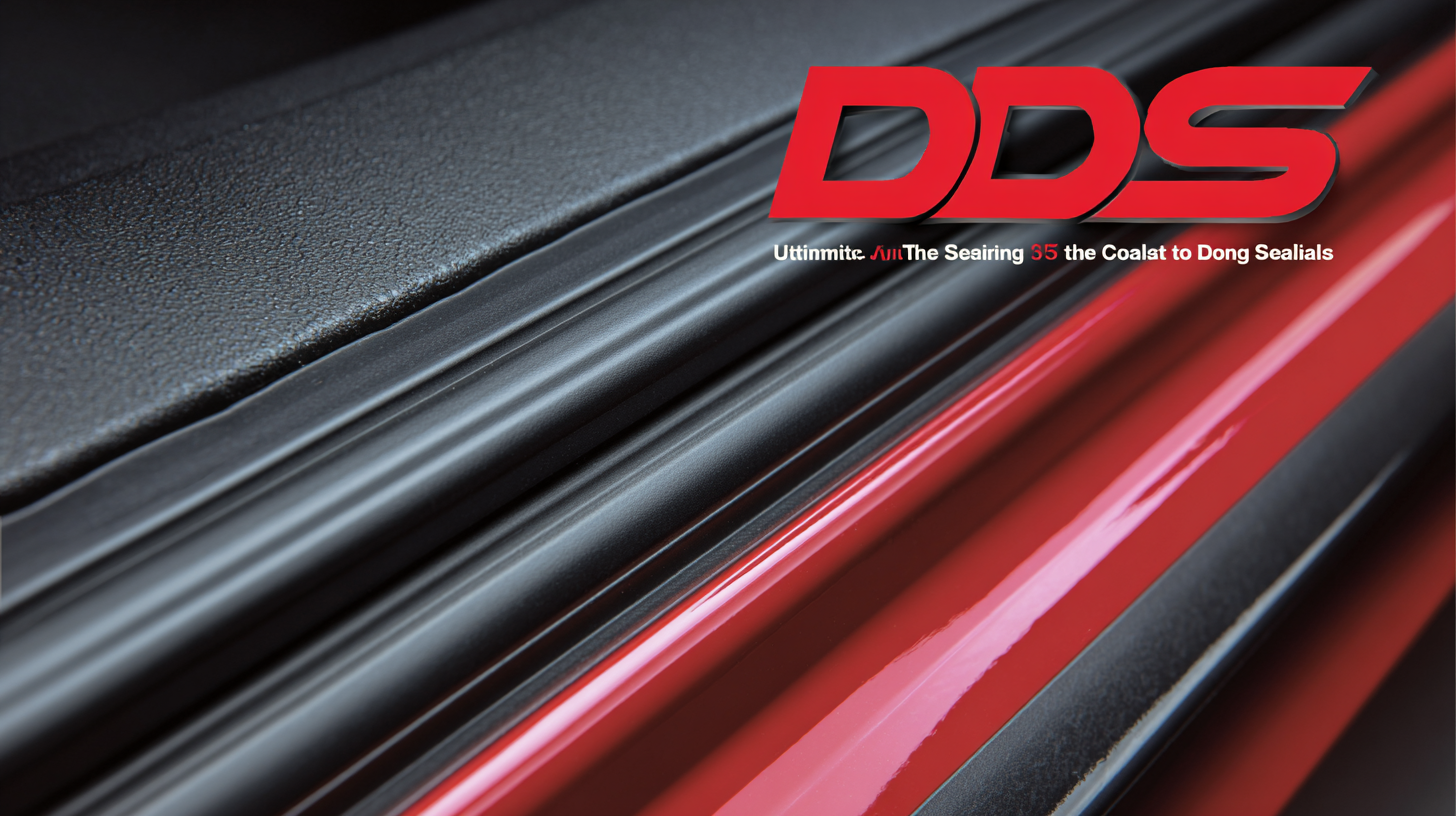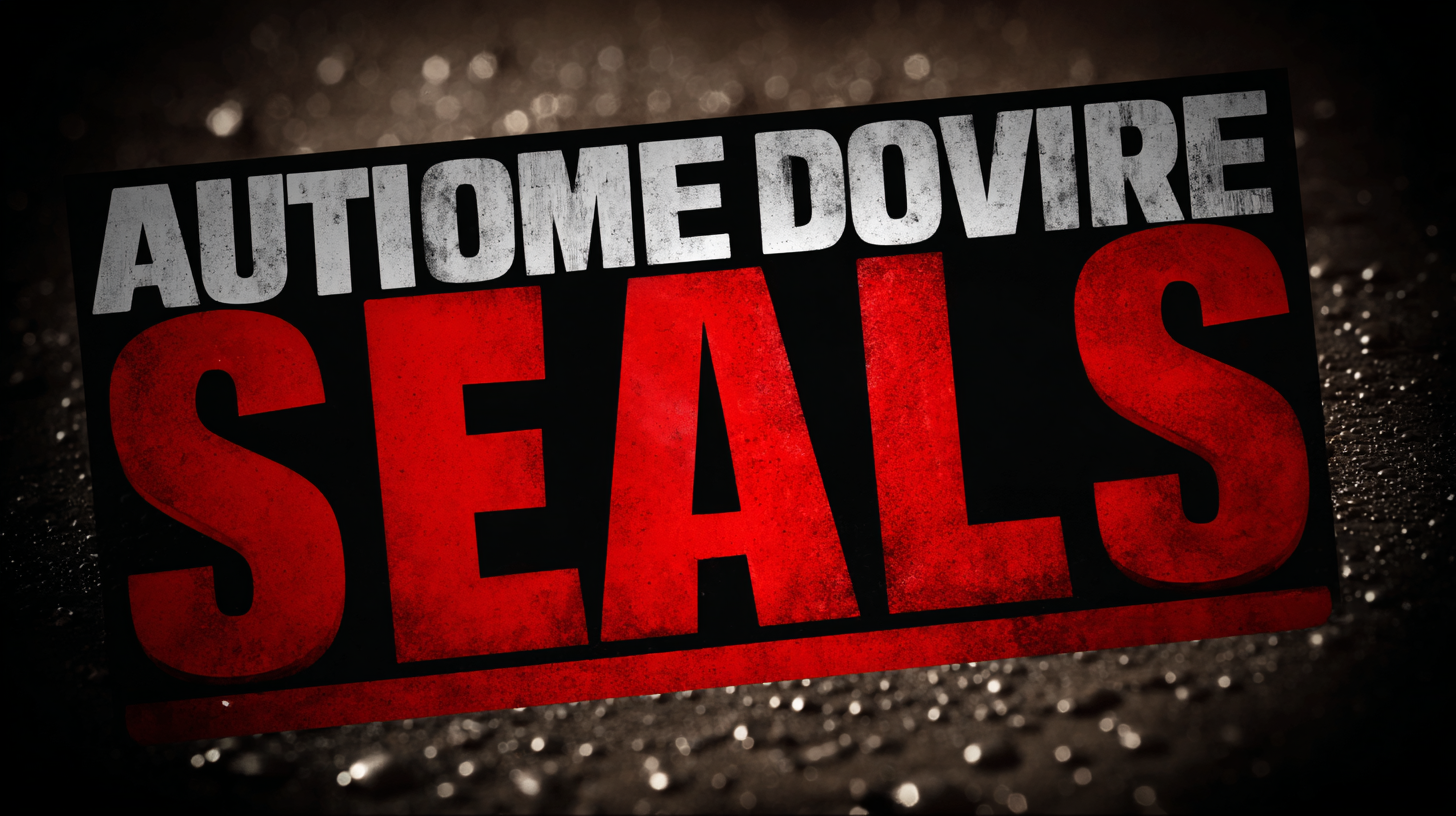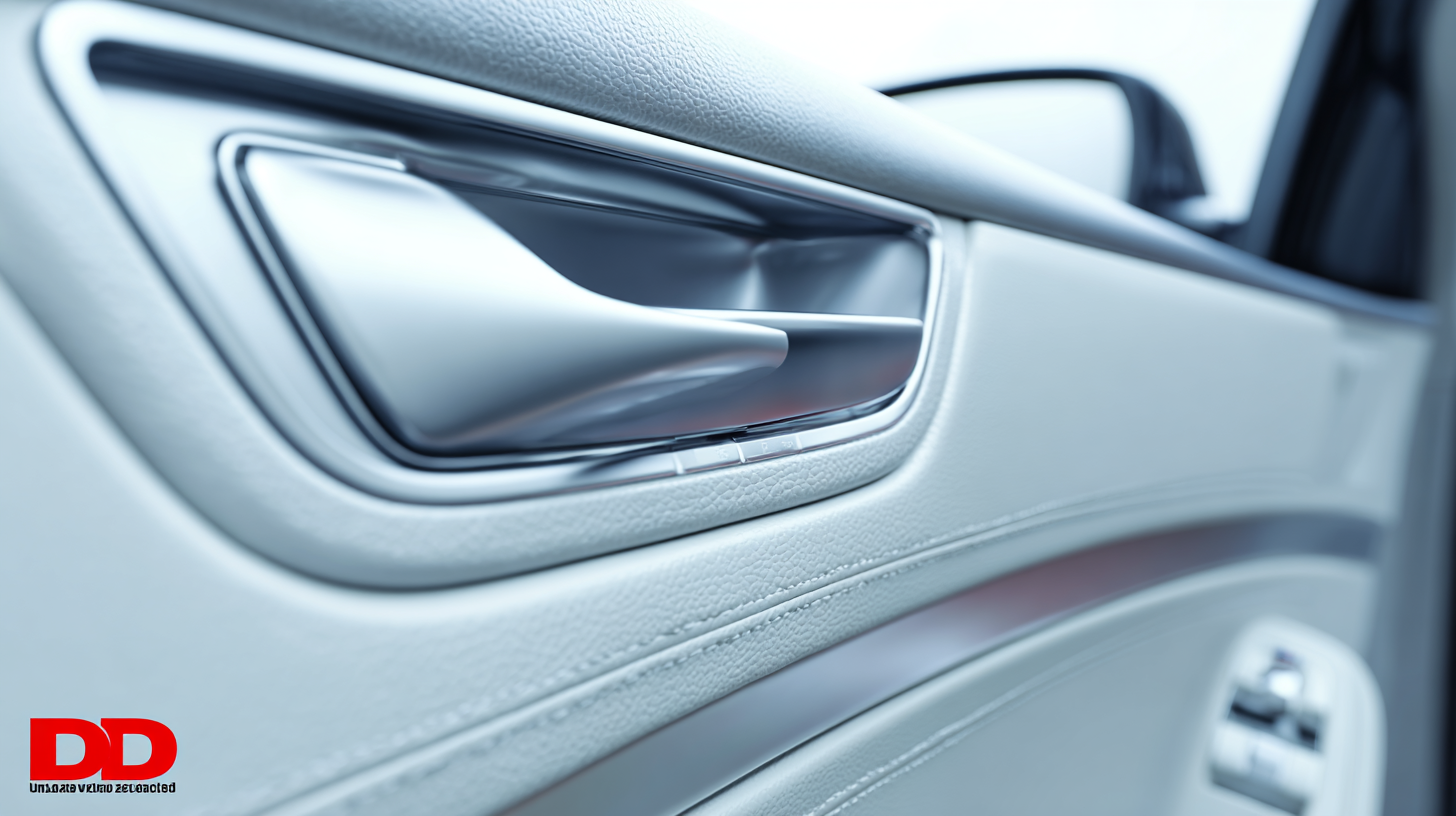When it comes to ensuring the comfort and safety of your vehicle, one often-overlooked component is the Automotive Door Seals. According to a recent report by Market Research Future, the global automotive weather stripping market, which includes door seals, is projected to reach $10 billion by 2025, growing at a rate of 5.2% annually. This underscores the importance of high-quality seals in reducing noise, preventing water intrusion, and maintaining cabin temperature. As vehicles evolve and incorporate advanced technologies, selecting the right door seals becomes critical not only for performance but also for enhancing the overall driving experience. In this ultimate guide, we will explore the various types of automotive door seals available in the market, their features, and key considerations to help you make the best choice for your vehicle.

High-quality automotive door seals play a crucial role in enhancing vehicle performance and owner satisfaction. One of the primary benefits of these seals is improved insulation against external noise. According to a study by the Society of Automotive Engineers, vehicles equipped with effective door seals can reduce cabin noise by up to 10 decibels, significantly enhancing the driving experience by creating a quieter environment.
Moreover, premium door seals contribute to better climate control within the vehicle. Research published in the Journal of Automotive Engineering indicates that proper sealing can enhance HVAC efficiency by up to 20%, allowing drivers and passengers to maintain a comfortable interior temperature more efficiently. This efficiency not only supports occupant comfort but can also lead to better fuel economy over time, as the HVAC system works less to combat outside air influences.
Lastly, high-quality door seals provide increased longevity of vehicle interiors by preventing moisture and dust ingress. A report from the Automotive Aftermarket Suppliers Association states that vehicles with superior sealing can reduce mildew and mold occurrence by nearly 30%, promoting a healthier cabin atmosphere. This safeguard against elements not only preserves the materials inside but also enhances the overall value of the vehicle in the long run.

When it comes to ensuring optimal performance for your vehicle, choosing the right automotive door seals is essential. Three key factors should be considered: material quality, fit precision, and environmental resistance. According to a report by the Automotive Seals Market Analysis, high-quality EPDM (ethylene propylene diene monomer) rubber seals are favored for their durability and resistance to extreme temperatures and ozone degradation. This makes them an ideal choice for vehicles exposed to varying climate conditions, enhancing longevity and effectiveness.
Additionally, the precision of fit cannot be overstated. Poorly fitting door seals can lead to air and water leaks, significantly impacting your vehicle's comfort and energy efficiency. Research from the Society of Automotive Engineers (SAE) indicates that proper sealing can reduce cabin noise levels by up to 30%, thereby improving the overall driving experience. Lastly, consider seals with enhanced environmental resistance, as these can withstand UV exposure and various chemicals, thereby maintaining integrity and performance over time. Making an informed choice in these areas can greatly enhance the functionality and lifespan of your vehicle's door seals.
This chart illustrates the key factors to consider when choosing automotive door seals for optimal performance. Material quality is the most important factor, followed by fit and compatibility, and durability. Ensuring these factors are met can greatly enhance the effectiveness of door seals in your vehicle.
When it comes to maintaining your vehicle's performance, one often overlooked component is the automotive door seals. Worn-out seals can lead to a variety of problems, including water leaks, increased cabin noise, and impaired HVAC efficiency. According to a report from the Automotive Door Seal Manufacturers Association, around 55% of vehicle soundproofing issues are linked to ineffective seals. This highlights the critical role that door seals play in overall vehicle comfort.
One common issue faced by older vehicles, like those that have traveled over 100,000 kilometers, is the degradation of these seals. In instances such as the reported oil leaks in older models, the failure of seals can result in engine fluid escaping, significantly impacting engine performance. Regularly inspecting door seals for signs of wear can help mitigate these problems early.
**Tips:** Always look for visible cracks or wear during routine maintenance. If you notice an unusual increase in cabin noise or feel drafts, it might be time to replace those seals. Additionally, consider applying silicone spray to help prolong the life of your automotive door seals, which can protect against the harsh elements and minimize cracking.
When it comes to automotive door seals, understanding the different types can significantly enhance your vehicle's comfort and performance. Here are four distinct types of door seals, each with unique advantages.
 First, we have rubber seals, which are the most common choice among vehicle owners. They provide excellent weather resistance, preventing water and debris from entering the car, while also reducing noise. One vital tip is to regularly inspect these seals for cracks or wear, as they can degrade over time and compromise their effectiveness.
First, we have rubber seals, which are the most common choice among vehicle owners. They provide excellent weather resistance, preventing water and debris from entering the car, while also reducing noise. One vital tip is to regularly inspect these seals for cracks or wear, as they can degrade over time and compromise their effectiveness.
Next, foam seals offer an alternative that excels in insulation. They are lightweight and can easily conform to the contours of your vehicle, ensuring a tight seal. A handy tip for users is to choose foam seals with adhesive backing for a straightforward installation process, minimizing the fuss of extra adhesives.
Lastly, silicone seals are popular for their durability and flexibility. They withstand extreme temperatures and resist UV damage, making them a long-lasting option. For optimal performance, ensure the surface is clean and dry before installation, allowing the silicone to adhere properly. By choosing the right type of door seal and maintaining it, you can enjoy a quieter, more comfortable ride.
When it comes to automotive door seals, proper installation and maintenance are crucial for ensuring longevity and performance. According to a report from the Automotive Sealing Association (ASA), approximately 30% of vehicle leaks can be attributed to worn or improperly installed door seals. Thus, understanding how to correctly install and maintain these seals can save you from costly repairs and enhance your vehicle's overall comfort.
Tip 1: Before installation, ensure that the door surface is clean and free from corrosion. A smooth surface allows for better adhesion and helps prevent premature wear. Additionally, consider using a specialized adhesive if your seals require it, as this can significantly extend their lifespan.
Tip 2: Regularly inspect your door seals for signs of wear, such as cracks or brittleness. Industry reports suggest that most seals need replacement every 3 to 5 years, depending on the materials used and environmental exposure. Make it a habit to check them during seasonal maintenance to catch any issues early.
Tip 3: Always choose high-quality seal materials. According to a study by Automotive Engineering International, vehicles equipped with premium-grade seals can experience a 40% reduction in noise intrusion and climate control issues. Investing in quality seals not only improves vehicle comfort but also prolongs the life of the seals themselves.
